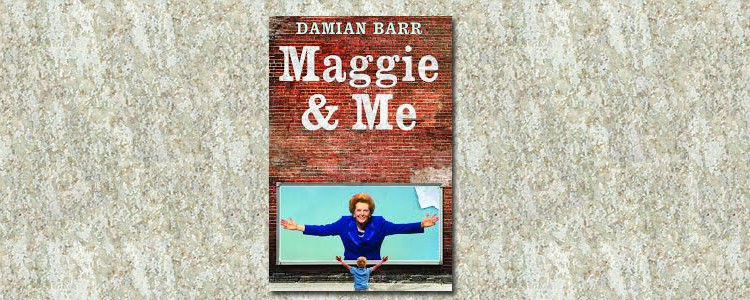J.R.R. Tolkien, legal battle with Warner Bros and two new books
On 3 July 2017 news broke that HarperCollins and Tolkien estate have settled a £62m or $80 million lawsuit against  Warner Bros, filed in November 2012. According to The Bookseller it was “over the licensing of online games, apps, slot machines and other types of gambling merchandise based on The Hobbit and The Lord of the Rings following a five-year dispute, Warner Bros has confirmed”. According to the Telegraph, Tolkien’s estate had accused the defendants of violating a 1969 agreement allowing the sale of “tangible” merchandise, by associating the books with the “morally-questionable (and decidedly non-literary) world of online and casino gambling”. The estate claimed this “outraged Tolkien’s devoted fan base” and irreparably harmed the legacy of the English author and Oxford English professor who died in 1973 at the age of 81. Curiously the estate was alerted to this fact when a SPAM email selling this merchandise landed in the Tolkien’s lawyer’s inbox!
Warner Bros, filed in November 2012. According to The Bookseller it was “over the licensing of online games, apps, slot machines and other types of gambling merchandise based on The Hobbit and The Lord of the Rings following a five-year dispute, Warner Bros has confirmed”. According to the Telegraph, Tolkien’s estate had accused the defendants of violating a 1969 agreement allowing the sale of “tangible” merchandise, by associating the books with the “morally-questionable (and decidedly non-literary) world of online and casino gambling”. The estate claimed this “outraged Tolkien’s devoted fan base” and irreparably harmed the legacy of the English author and Oxford English professor who died in 1973 at the age of 81. Curiously the estate was alerted to this fact when a SPAM email selling this merchandise landed in the Tolkien’s lawyer’s inbox!
The settlement could not have been better timed given that Tolkien’s third son and literary executor, Christopher Tolkien has just published Beren and Lúthien. It is a new book by JRR Tolkien published for the first time a 100 years after it was first written. It has been described as a “very personal story” that the Oxford professor thought up after returning from the Battle of the Somme. It is edited by Christopher Tolkien and contains versions of a tale that became part of The Silmarillion. The book features exquisite book illustrations by Alan Lee, who won an Academy Award for his work on Peter Jackson’s film trilogy. Tolkien specialist John Garth, who wrote Tolkien And The Great War, said the Hobbit author used his writing like an “exorcism” of the horrors he witnessed in World War One. John Garth reviewed the book for New Statesman . He writes:
Beren and Lúthien contains one thread, woven in turn from strands as diverse as the Welsh Culhwch and Olwen and the German “Rapunzel”. Tolkien’s big idea was that his “Lost Tales” were the pure, ungarbled originals of such oral stories. Aided by his storytelling verve, and embedded in his matrix of invented history, geography and language, it rises far above pastiche. A wild, ragged wanderer and an elf princess meet by unlikely chance and fall in love. Her scornful father sets what seems an impossible marriage condition – regaining one of the Silmarils from the iron crown of the satanic enemy Morgoth.
That inspirational moment in the wood at Roos, Yorkshire, was central both to Tolkien’s creative and to his personal lives. The names Beren and Lúthien are carved under his name (1973) and Edith’s (1971) on their Oxford headstone. So this book – with watercolours and pencil sketches by the veteran Tolkien artist Alan Lee – is presented by its editor, their third child, Christopher, as a memorial to his parents. And it is the capstone to a job Christopher began with The Silmarillion, published in 1977 – a seamless editorial construct from a bewilderment of posthumous papers, which he gave the full scholarly treatment in his later, 12-volume History of Middle-earth.
Isolating the thread of the Beren and Lúthien story, Christopher (now 92) walks a difficult line, but successfully conveys its evolution by making generous selections from Tolkien’s own versions, with some bridging comments of his own. The book includes the early “Lost Tales” plus nearly 3,000 lines of a verse version begun in 1925 and abandoned in 1931, The Lay of Leithian. Interspersed are portions of chronicle-style retellings from successive Silmarillions written in 1926, 1930 and 1937 – the last of these abandoned in mid-flow when a publisher demanded a sequel to the newly published Hobbit instead.
A couple of years ago Christopher Tolkien had also released his father’s delicious translation of Beowulf. It is enriched by the endnotes and lectures.
Given this context and that good content in the twenty-first century is considered as valuable as oil then the legal battle won by the Tolkien estate and his daughter is absolutely stupendous. These books are still not out of copyright and certainly not the recent ones published by Tolkien’s children. So the estate stands to gain.
In March 2017 it was revealed that Oxford University’s Bodleian Library will release a title featuring illustrations, letters and other material from Tolkien’s archives that have never before been seen by the public, to coincide with a major exhibition on The Lord of the Rings author in 2018. It will open in June 2018.
( Both the books have been published by HarperCollins.)
4 July 2017







